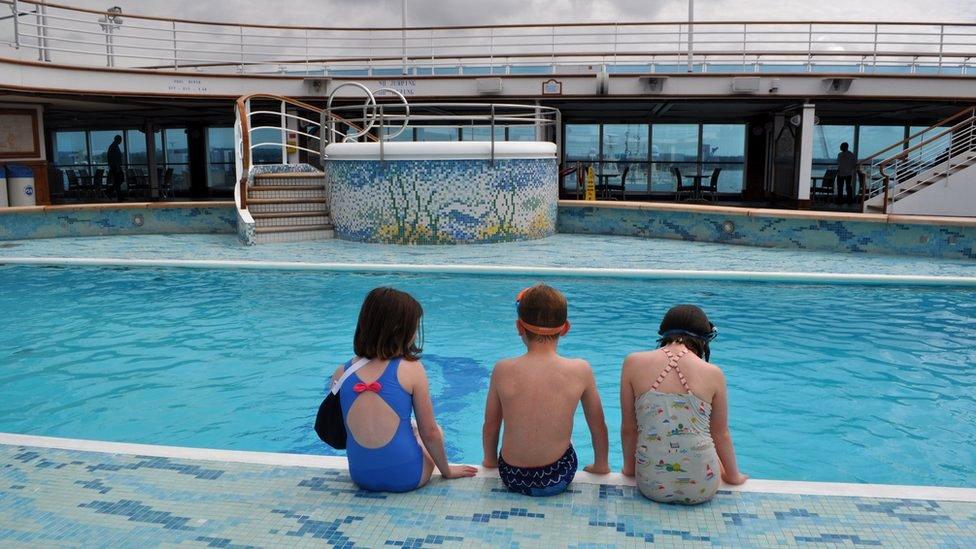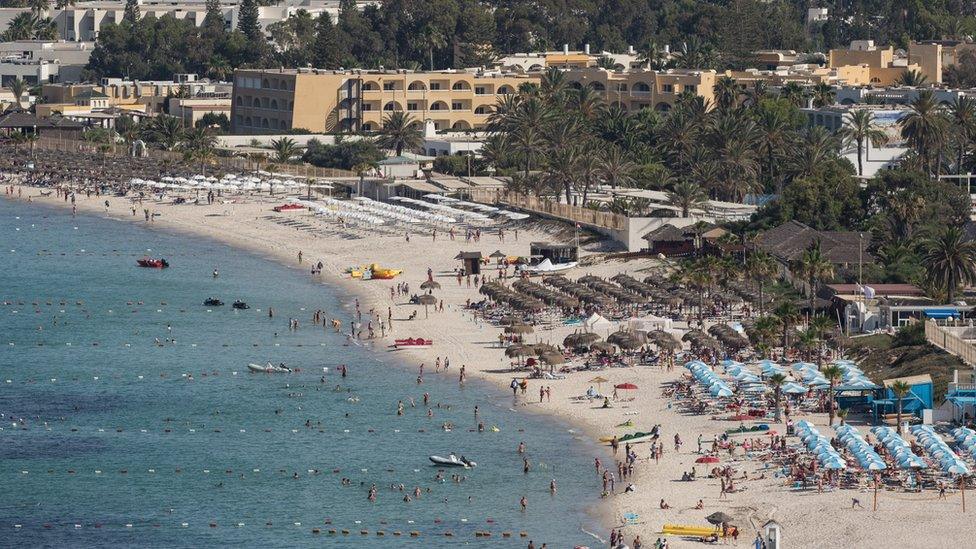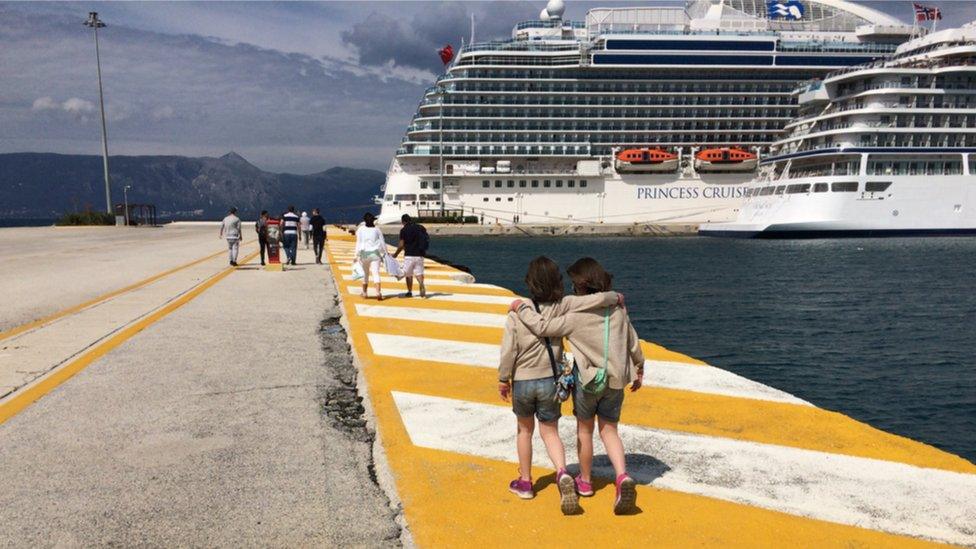Why are more young people and families going on cruises?
- Published
- comments

Sabrina and Keith Lesser have taken three cruises in the past three years
Keith Lesser and his wife Sabrina are counting down the days. At the end of this month they set sail on a five day cruise to France.
Along the way they're planning to use the gym and spa, socialise at dinner, watch the entertainment and see the sights.
But Keith and Sabrina aren't your stereotypical cruise-going couple. He's 36 and a chartered accountant. She is 38 and a psychologist and birth companion.
This will be their third cruise in three years and they've got another one lined up to Norway for later in the year.
So just what is it that keeps them going back for more?
"It's a good opportunity to travel to lots of different places in a short space of time," says Keith. "You can even board a ship in the UK so don't need to fly."
Once on board, he adds, there's a "big choice of food, lots to do, spa, gym, everything you would get in a top hotel. Lots of young people and everyone is very friendly."
'Increasingly popular'
And, it seems, they're not alone.
This week, the world's largest holiday company, TUI, reported better trading figures. It was an improvement driven, in particular, by its cruise business, which saw profits jump by 24%.
The division's performance was helped, TUI said, because although an ageing population means traditional older cruise clientele were on the increase, sea cruises had also become "increasingly popular among families and young people".
TUI chief executive Fritz Joussen said the forecasts for cruising were "excellent".
"Due to demographic change, traditional target groups are growing," he said.

Cruise companies are trying to attract more families and young people
"At the same time, sea voyages are becoming increasingly popular among families and younger people.
"The convergence of these two very promising trends will further accelerate growth over the next five to ten years. And we are only at the beginning of this trend."
And industry figures suggest it's a trend that's not confined to TUI.
Almost two million cruises were sold in the UK last year, and most were bought by those aged 40 or over. The average age of a UK cruise-goer was 56.
But the industry says many young people have discovered cruising - and that looks set to spread.
Recent research by travel industry association ABTA found that in the coming year, one in ten 18-24 year olds and one in ten 25-34 year olds reckon they'll take a cruise.
So what's going on?
'Challenge perceptions'
Andy Harmer, UK and Ireland director of the Cruise Lines International Association (Clia), says his organisation represents about 50 cruise lines worldwide and each has its own target market.
"A number see the value in engaging guests from a younger age group."

Many activities on board ship are designed to appeal to a younger audience
If the cruise lines "don't engage a younger audience they won't grow as they have done," he says.
Put bluntly, some companies have deliberately set out to attract a younger audience in order to ensure they still have a clientele in the years to come.
TUI, for one, says it runs campaigns "to challenge the perceptions of cruising" and show cruising as a "great option for couples, friends and families".
The industry as a whole has gone all out to build new ships with young couples and families in mind, turning cabins into family-style suites, for example.
Activities, both on board and on shore, are a big attraction for the new market of millennials, says Clia's Andy Harmer.
Everything from go-karting and ice skating, to sushi making and wine tasting, as well as kids' clubs, are designed to draw in a wider audience.
And another draw is the fact that so many cruises are all-inclusive prices, making it easier to budget, he reckons.
The hope is people will catch onto cruising when they're young, and the industry will "keep them with us for a lifetime," says Mr Harmer.
So do Keith and Sabrina Lesser see themselves still taking cruises when they're in their 70s? "Yes," is the unambiguous reply.
- Published10 August 2017

- Published23 July 2017
